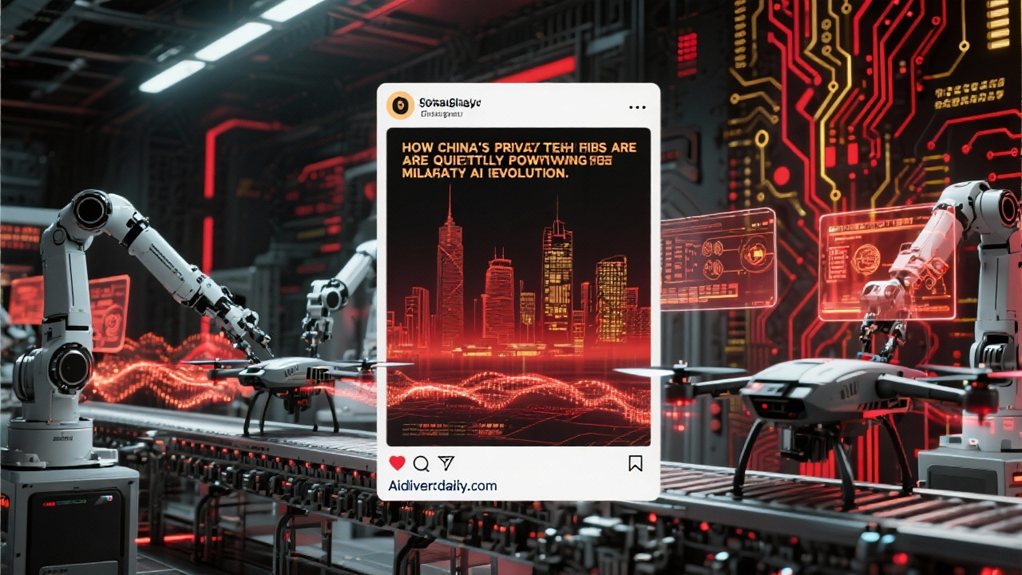In the whirlwind of technological advancement, China’s private tech firms are diving headfirst into the military AI pool, and it’s a sight to behold. The country is not playing around. With the Military-Civil Fusion (MCF) policy, China is blurring the lines between civilian innovation and military might like a kid smashing LEGO sets together. The People’s Liberation Army (PLA) is cashing in on this collaboration, and it’s a game-changer.
Between 2023 and 2024, a whopping 2,857 AI-related defense contracts were handed out to 1,560 organizations. Many of those organizations? Nontraditional private firms. Talk about a twist!
A staggering 2,857 AI defense contracts went to 1,560 organizations, with many being nontraditional private firms—what a twist!
Top leaders, including Xi Jinping, are overseeing the MCF efforts, ensuring that everything aligns with their defense strategy. It’s like orchestrating a symphony, only the instruments are cutting-edge AI technologies, and the stakes are sky-high. These private firms are cranking out innovations at a speed that makes traditional state-owned enterprises look like they’re stuck in molasses. State-owned enterprises remain dominant in AI-related military procurement, but the rise of private firms is reshaping the landscape. This systematic incorporation of AI allows the PLA to refine its operations and enhance its capabilities more rapidly than ever.
Faster innovation cycles mean the PLA is integrating AI into its operations quicker than ever before. With an 8 billion dollar fund now backing AI development, the momentum is unstoppable. The ambitions are massive. China is not just playing catch-up; they’re aiming for dominance in intelligentized warfare. From autonomous systems to battlefield awareness, the breadth of applications is staggering.
They’re not just looking for drones; they want everything from unmanned combat vehicles to real-time data fusion. The contracts reveal an expansive appetite for deep learning, computer vision, and autonomous decision-making systems. It’s like they’re preparing for a sci-fi movie but with real-life consequences.
Private tech companies are at the heart of this military AI revolution. They’re not just suppliers; they’re key players. These firms are smart, adapting civilian tech for military use under the guise of MCF. It’s a win-win, filling critical gaps in capabilities like machine learning and autonomous navigation.
Many of them keep a civilian facade, but behind the scenes, they’re deep in defense contracts. Who said tech startups can’t be part of the military-industrial complex?
The implications are serious. China’s rapid military AI development raises eyebrows and tensions in the Indo-Pacific. It’s not just about shiny new toys; it’s about strategic stability and potential nuclear risks. The integration of private tech raises questions about accountability and ethics.
As the lines blur, the world holds its breath, wondering what comes next.









